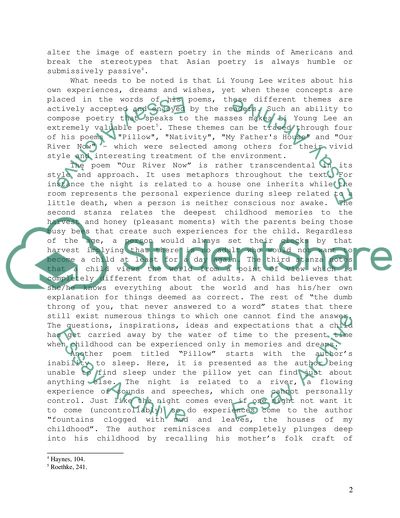Cite this document
(Poems of Li Young-Lee Essay Example | Topics and Well Written Essays - 2000 words, n.d.)
Poems of Li Young-Lee Essay Example | Topics and Well Written Essays - 2000 words. https://studentshare.org/literature/1707315-earthly-materialist
Poems of Li Young-Lee Essay Example | Topics and Well Written Essays - 2000 words. https://studentshare.org/literature/1707315-earthly-materialist
(Poems of Li Young-Lee Essay Example | Topics and Well Written Essays - 2000 Words)
Poems of Li Young-Lee Essay Example | Topics and Well Written Essays - 2000 Words. https://studentshare.org/literature/1707315-earthly-materialist.
Poems of Li Young-Lee Essay Example | Topics and Well Written Essays - 2000 Words. https://studentshare.org/literature/1707315-earthly-materialist.
“Poems of Li Young-Lee Essay Example | Topics and Well Written Essays - 2000 Words”. https://studentshare.org/literature/1707315-earthly-materialist.


